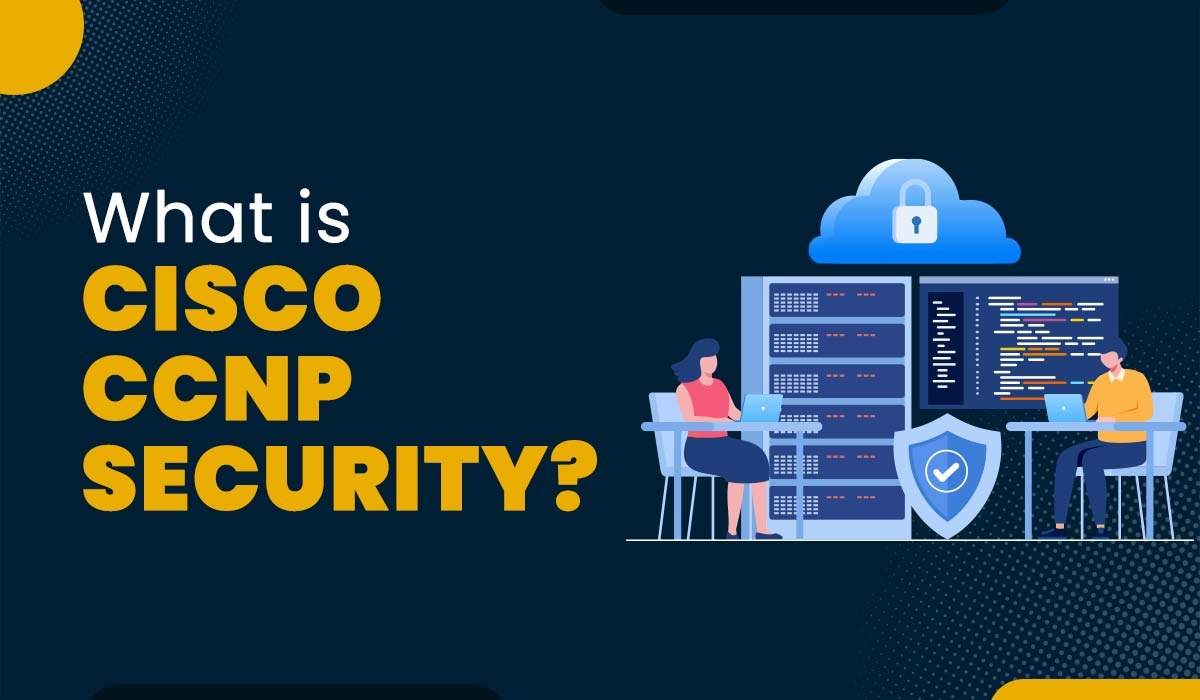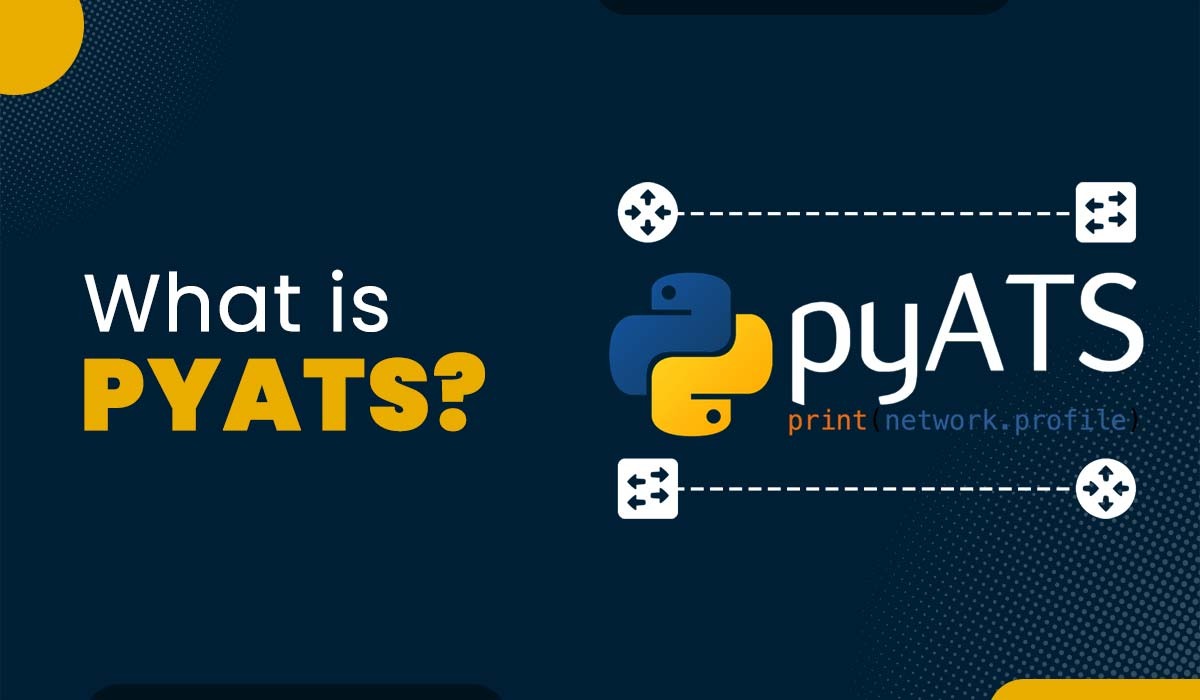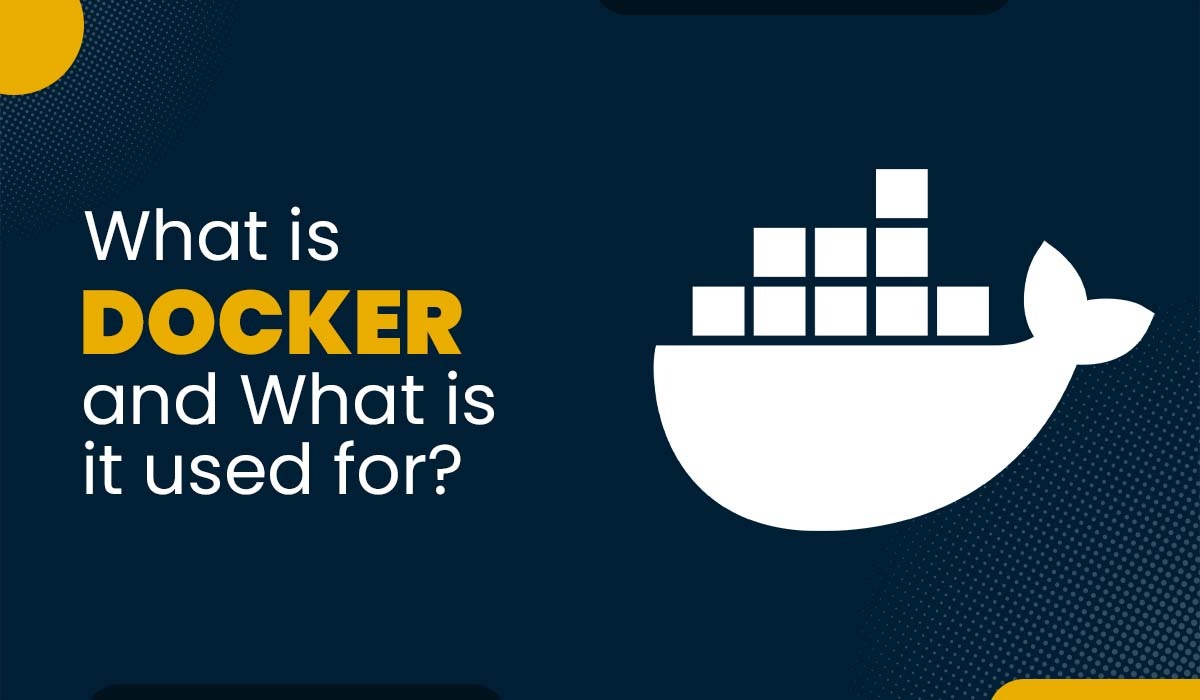What is Cisco CCNP Security?

Nowadays, the world is digitally interconnected and almost all organizations are using technologies to streamline their operations, but with good things also come bad things. So similarly, technology provides benefits, but it also encourages cyber threats which are increasing with every passing day and causing the loss of sensitive data and critical infrastructure. Therefore, the need to secure sensitive data and critical infrastructure by skilled professionals equipped with advanced knowledge in network security has become urgent. The Cisco Certified Network Professional – CCNP Security certification allows mastering the complexity of securing network infrastructure. It covers network security technologies and solutions and equips experts with the skills needed to secure Cisco networks effectively. The CCNP Security Core training paves the way for the CCNP Security certification. It equips individuals with the fundamental knowledge and practical skills required to thrive in the world of Cisco network security. In this blog, we will understand all the essential aspects of Cisco Certified Network Professional security and how it can be useful to you in the long run. So, let’s get started with what CCNP security is. The CCNP Security is a professional-level certification and one of the most respected certifications in the industry offered by Cisco Systems, the global leader in networking technology. It is for individuals who want to become a network engineer and earn a good salary in the industry by becoming an asset to IT network security. The Cisco CCNP security certification assists in validating the skills and knowledge of network security engineers, which helps to maintain, implement, and troubleshoot Cisco network security solutions. Additionally, it now includes programmability and automation to enhance your security infrastructure. CCNP security specifically explains the job position of a Cisco network security engineer who deploys, selects, secures, and deploys routers, switches, appliances, and networking devices, as well as VPN, firewall, and IDS/IPS solutions for their networking environment. It also shows a dedication to professional development and a willingness to stay up to date with advanced security technologies. When you achieve your security certification, you prove that you can enter the security environment and protect the networks and data that customers rely on. CCNP Security is an intermediate Cisco certification. To obtain this certification, you must pass two exams: one that covers core security technologies and a concentration exam – if you want to specialize in a specific area. Here are the seven-concentration exams of the CCNP Security: Note: You can choose your specific certification as per your technical area of focus because each exam in this program now receives an individual specialist certification, giving you an acknowledgment of your accomplishments. To obtain Cisco Certified Network Professional security certification, you must meet certain requirements. It will ensure that when you take the exam, you will have the knowledge and skills needed to pass it. Yes, the Cisco Certified Network Professional security is worth it in the future because it provides the knowledge and skills needed to secure Cisco networks. It includes implementing and maintaining security technologies, troubleshooting security incidents, and designing secure network architectures. Companies hire security professionals who understand how security requirements have changed and know how to implement them. It also helps attract more professionals because there are more opportunities to learn and innovate. Apart from the above, there are other reasons that define why it may be worthwhile to obtain certification, such as: The Security Certification and Training Program enhances your real-world, job-focused skills in key areas. It confirms the knowledge required to specialize in your work. Therefore, below are the current Cisco CCNP security syllabus: Security professionals are always in high demand in telecommunications, finance and banking, healthcare, education, IT services, government and defence, and many other industries. Here are some of the job roles in India: There are many other job roles for the Cisco CCNP Security Professionals. Companies greatly value security professionals for their advanced technical skills and ability to design and implement security solutions into network infrastructure effectively. The salary package after obtaining CCNP security training in India may vary as it depends on many factors such as experience, location, company and industry. Once one moves to senior-level positions, specific roles, and experience, the salary can increase further. However, the salary of employees having knowledge and skills in security networking ranges from Rs 3 LPA to Rs 8 LPA. Below are some tips to enhance your preparation for the exam: Required Exam: 350-701 SCOR – 400 USD + Applicable Taxes (Different for Different Countries) Concentration exam fees: So, the total price for CCNP Security exam cost is USD 700 + applicable taxes. Note– Exam costs are based on per exam attempt and do not include travel or accommodation expenses. Costs may vary depending on exchange rates and local taxes in different countries. We need certification because it will show that we have the skills and knowledge necessary to work with security tools to secure enterprise-scaled networks and Cisco proprietary technology. Yes, the Cisco security certification is worth the investment and will allow us to meet the requirements for a higher-level career path. The CCNP certificate will certify your knowledge of security using network devices and Cisco proprietary technology, is customizable, provides an Expert badge, and qualifies you for the CCIE Security Lab exam. The core examination for security certification has been called Implementing and Operating Cisco Security Core Technologies 350-702 SCOR. The core exam lasts for 120 minutes, and each of the 6 concentration exams lasts for 90 minutes. Achieving CCNP security certification can be an important task in one’s career as a network security professional. The advanced technical skills, industry recognition, and career opportunities that come with becoming Cisco CCNA Security-certified make it worthwhile in the field of networking. In this blog, we defined everything about Security networking and discussed the syllabus and fee structure of the exam. For any doubts or suggestions feel free to use the comment section below.Introduction
What is CCNP security?
Roadmap to CCNP Security
CCNP Security Prerequisites
Is CCNP Security Worth It?
CCNP Security course outline
CCNP Security Jobs in India
CCNP Security Salary
Preparation Strategies for CCNP Security Certification
CCNP Security Exam Cost
Frequently Asked Questions
Q1 – Why do we need Cisco Certified Network Professional (CCNP) security certification?
Q2 – Is the Cisco CCNP Security Certification Worth the Investment?
Q3 – What is the core exam for security certification?
Q4 – How much time will I have to complete the Cisco Certified Network Professional Security Certification Exam?
Conclusion







